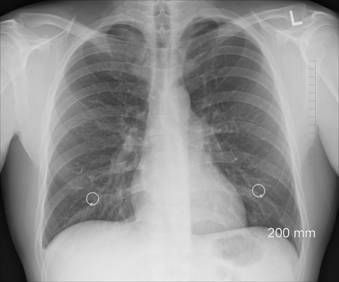Study: Emphysema and Heart Failure a Deadly Combination
 In a single-center study of smokers with heart failure, those who also had emphysema identified by CT were twice as likely to be re-hospitalized for heart failure in the following two years, and they demonstrated 70 percent greater odds of dying during that time frame than smokers without emphysema.
In a single-center study of smokers with heart failure, those who also had emphysema identified by CT were twice as likely to be re-hospitalized for heart failure in the following two years, and they demonstrated 70 percent greater odds of dying during that time frame than smokers without emphysema.
The researchers identified 225 inpatients who both smoked and had heart failure from January through March of 2014. The study population was 69 years old on average, 69 percent male and had an average left ventricular ejection fraction (LVEF) of 46 percent. Forty-six percent of those patients had emphysema upon CT. After adjusting for other risk factors, they were 2.11 times more likely to be re-admitted for heart failure over a 2.1-year follow-up and 70 percent more likely to die.
In addition to being more likely to wind up back in the hospital, emphysema patients also averaged longer stays (seven days versus five) and were likely to be re-admitted sooner—a median 162 days versus 327 days for people without emphysema.
“These data should serve as the basis for further study including considering whether therapy based on the presence of emphysema on CT can improve complex HF outcomes,” lead author Puja Kohli, MD, with Massachusetts General Hospital in Boston, and colleagues wrote in PLOS One.
“Our study findings add to that data and show an association between emphysema by CT and an increased cardiac afterload specifically among patients with HF,” they wrote. “The mechanism by which afterload is increased in patients with emphysema and HF is unclear; however, data suggest that increased transmural pressure because of thoracic pressure swings, extrinsic compression in the setting of hyperinflation, and systemic inflammation may all play a role.”
Kohli and colleagues noted that almost half of the patients in their study had emphysema, including 39 percent without known chronic obstructive pulmonary disorder.
“This under-recognized group of patients with both emphysema and heart failure may benefit from improved recognition and characterization of their co-morbid disease processes and optimization of therapies for their lung disease,” the authors wrote.
Click here to read the entire article on Cardiovascular Business.




